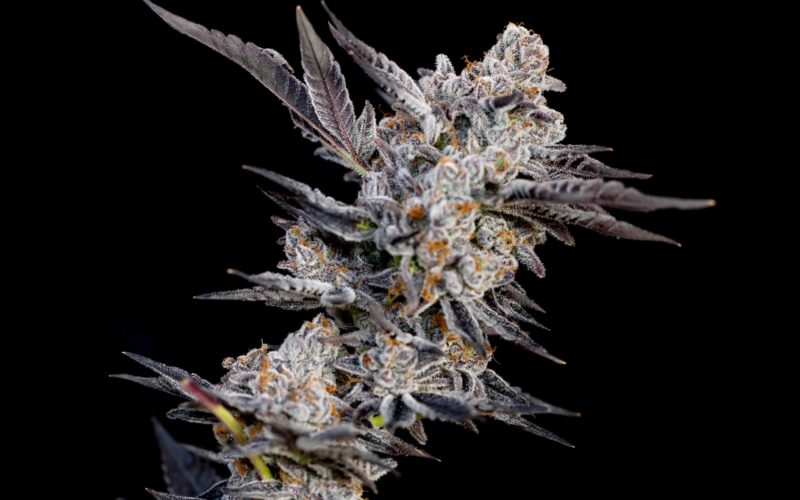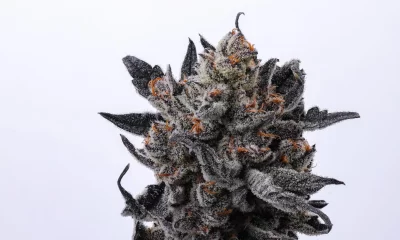Business
Viridis Laboratories Continues to Fight for Safety of Michigan Cannabis Consumers

In the wake of Michigan cannabis product recalls in 2021, Viridis Founder speaks up about the Michigan Cannabis Regulatory Agency (CRA) lawsuit and how the company will continue to defend itself and the safety of Michigan cannabis consumers.
Viridis Chief Operations Officer and Founder Todd W. Welch sent an email on June 17 with a statement addressing the company’s values and recent information that has come to light regarding the CRA.
“These CRA allegations against Viridis are from last August and continue to be baseless, meritless and totally detached from science, facts and data,” said the statement. “We intend to defend our business against these false claims during the court process and show the vindictive and retaliatory nature of the CRA’s actions which are clearly designed to cause maximum disruption and damage.”
“Court-ordered proficiency test results that Viridis is in possession of, which the CRA had been withholding, will directly contradict these findings, and we’re confident the truth will prevail when all facts come to light,” the statement continued. “We hope these legal proceedings will pave the way for more transparency, accountability, and reforms at the CRA. Our hope is that the CRA can one day fulfill its true mission of promoting patient and product safety instead of unfairly targeting Michigan businesses trying to grow, compete and create jobs.”
The email also shared that nearly all of the company’s customers have returned, with an added 63 new customers. The company supports testing for approximately 62% of the state’s flower.
The CRA (formerly called the MRA, or Marijuana Regulatory Agency, as of April 2022) issued a recall for products tested by Viridis Laboratories and Viridis North in November 2021, with claims that Viridis products contained “inaccurate and/or reliable results,” for products analyzed within the range of August 10 and November 16, 2021. This resulted in the recall of an estimated $229 million in product value.
The MRA claimed that Viridis’ methods of testing were “unreliable” and “inaccurate,” which Viridis responded to by filing a Court of Claims lawsuit against the MRA on November 23.
By December 3, the court ruled that the CRA must release half of the accused products, which were tested by Viridis North, LLC. Viridis Attorney Kevin Blair praised the court decision, even if “the entire recall was completely without merit.” “This ill-advised recall has caused irreparable harm not only to Viridis but to growers, retailers and consumers throughout the state. The MRA needs to be held fully accountable for violating state law, ignoring the advice of respected national experts and causing mass disruption to the Michigan cannabis industry,” he said in a press release.
Months later in February 2022, more news came forward regarding the CRA’s conduct. Judge Thomas Cameron released a court opinion that “the issuance of the recall against the Bay City facility was, on the Court’s review of the record, arbitrary and without basis.”
Shortly after this, it was revealed that CRA had instructed its agents not to seize illegal cannabis found at CRA-licensed facilities. New evidence from CRA depositions shared troubling truths about the inner workings of the MRA when it comes to following its own policies.
In March, Senator Aric Nesbitt questioned the CRA and its management. “I think it was poorly communicated to your licensees and it didn’t seem like you had thought through the impact on the wider marketplace before acting on the recall, and I thought it was very poorly done and very clumsy in the implementation of the recall,” Nesbitt said at a Senate Appropriations Subcommittee on Licensing and Regulatory Affairs/Insurance and Financial Services.
Most recently in May, the CRA filed formal complaints about the accuracy of Viridis’s THC test results. According to Viridis CEO Greg Michaud, described that allegations from the CRA “continue to be baseless, meritless and totally detached from science, facts and data.”
Furthermore, Michaud shared that the CRA’s Inter-Laboratory Proficiency Test, which was obtained via a court order, reveals some shocking finds about other lab testing facilities in Michigan. The test results are not yet public, but Welch’s email suggests that more news will be announced soon.
Business
New Mexico cannabis operator fined, loses license for alleged BioTrack fraud

New Mexico regulators fined a cannabis operator nearly $300,000 and revoked its license after the company allegedly created fake reports in the state’s traceability software.
The New Mexico Cannabis Control Division (CCD) accused marijuana manufacturer and retailer Golden Roots of 11 violations, according to Albuquerque Business First.
Golden Roots operates the The Cannabis Revolution Dispensary.
The majority of the violations are related to the Albuquerque company’s improper use of BioTrack, which has been New Mexico’s track-and-trace vendor since 2015.
The CCD alleges Golden Roots reported marijuana production only two months after it had received its vertically integrated license, according to Albuquerque Business First.
Because cannabis takes longer than two months to be cultivated, the CCD was suspicious of the report.
After inspecting the company’s premises, the CCD alleged Golden Roots reported cultivation, transportation and sales in BioTrack but wasn’t able to provide officers who inspected the site evidence that the operator was cultivating cannabis.
In April, the CCD revoked Golden Roots’ license and issued a $10,000 fine, according to the news outlet.
The company requested a hearing, which the regulator scheduled for Sept. 1.
At the hearing, the CCD testified that the company’s dried-cannabis weights in BioTrack were suspicious because they didn’t seem to accurately reflect how much weight marijuana loses as it dries.
Company employees also poorly accounted for why they were making adjustments in the system of up to 24 pounds of cannabis, making comments such as “bad” or “mistake” in the software, Albuquerque Business First reported.
Golden Roots was fined $298,972.05 – the amount regulators allege the company made selling products that weren’t properly accounted for in BioTrack.
The CCD has been cracking down on cannabis operators accused of selling products procured from out-of-state or not grown legally:
- Regulators alleged in August that Albuquerque dispensary Sawmill Sweet Leaf sold out-of-state products and didn’t have a license for extraction.
- Paradise Exotics Distro lost its license in July after regulators alleged the company sold products made in California.
Golden Roots was the first alleged rulebreaker in New Mexico to be asked to pay a large fine.
Source: https://mjbizdaily.com/new-mexico-cannabis-operator-fined-loses-license-for-alleged-biotrack-fraud/
Business
Marijuana companies suing US attorney general in federal prohibition challenge

Four marijuana companies, including a multistate operator, have filed a lawsuit against U.S. Attorney General Merrick Garland in which they allege the federal MJ prohibition under the Controlled Substances Act is no longer constitutional.
According to the complaint, filed Thursday in U.S. District Court in Massachusetts, retailer Canna Provisions, Treevit delivery service CEO Gyasi Sellers, cultivator Wiseacre Farm and MSO Verano Holdings Corp. are all harmed by “the federal government’s unconstitutional ban on cultivating, manufacturing, distributing, or possessing intrastate marijuana.”
Verano is headquartered in Chicago but has operations in Massachusetts; the other three operators are based in Massachusetts.
The lawsuit seeks a ruling that the “Controlled Substances Act is unconstitutional as applied to the intrastate cultivation, manufacture, possession, and distribution of marijuana pursuant to state law.”
The companies want the case to go before the U.S. Supreme Court.
They hired prominent law firm Boies Schiller Flexner to represent them.
The New York-based firm’s principal is David Boies, whose former clients include Microsoft, former presidential candidate Al Gore and Elizabeth Holmes’ disgraced startup Theranos.
Similar challenges to the federal Controlled Substances Act (CSA) have failed.
One such challenge led to a landmark Supreme Court decision in 2005.
In Gonzalez vs. Raich, the highest court in the United States ruled in a 6-3 decision that the commerce clause of the U.S. Constitution gave Congress the power to outlaw marijuana federally, even though state laws allow the cultivation and sale of cannabis.
In the 18 years since that ruling, 23 states and the District of Columbia have legalized adult-use marijuana and the federal government has allowed a multibillion-dollar cannabis industry to thrive.
Since both Congress and the U.S. Department of Justice, currently headed by Garland, have declined to intervene in state-licensed marijuana markets, the key facts that led to the Supreme Court’s 2005 ruling “no longer apply,” Boies said in a statement Thursday.
“The Supreme Court has since made clear that the federal government lacks the authority to regulate purely intrastate commerce,” Boies said.
“Moreover, the facts on which those precedents are based are no longer true.”
Verano President Darren Weiss said in a statement the company is “prepared to bring this case all the way to the Supreme Court in order to align federal law with how Congress has acted for years.”
While the Biden administration’s push to reschedule marijuana would help solve marijuana operators’ federal tax woes, neither rescheduling nor modest Congressional reforms such as the SAFER Banking Act “solve the fundamental issue,” Weiss added.
“The application of the CSA to lawful state-run cannabis business is an unconstitutional overreach on state sovereignty that has led to decades of harm, failed businesses, lost jobs, and unsafe working conditions.”
Business
Alabama to make another attempt Dec. 1 to award medical cannabis licenses

Alabama regulators are targeting Dec. 1 to award the first batch of medical cannabis business licenses after the agency’s first two attempts were scrapped because of scoring errors and litigation.
The first licenses will be awarded to individual cultivators, delivery providers, processors, dispensaries and state testing labs, according to the Alabama Medical Cannabis Commission (AMCC).
Then, on Dec. 12, the AMCC will award licenses for vertically integrated operations, a designation set primarily for multistate operators.
Licenses are expected to be handed out 28 days after they have been awarded, so MMJ production could begin in early January, according to the Alabama Daily News.
That means MMJ products could be available for patients around early March, an AMCC spokesperson told the media outlet.
Regulators initially awarded 21 business licenses in June, only to void them after applicants alleged inconsistencies with how the applications were scored.
Then, in August, the state awarded 24 different licenses – 19 went to June recipients – only to reverse themselves again and scratch those licenses after spurned applicants filed lawsuits.
A state judge dismissed a lawsuit filed by Chicago-based MSO Verano Holdings Corp., but another lawsuit is pending.
Source: https://mjbizdaily.com/alabama-plans-to-award-medical-cannabis-licenses-dec-1/
-

 Business2 years ago
Business2 years agoPot Odor Does Not Justify Probable Cause for Vehicle Searches, Minnesota Court Affirms
-

 Business2 years ago
Business2 years agoNew Mexico cannabis operator fined, loses license for alleged BioTrack fraud
-

 Business2 years ago
Business2 years agoAlabama to make another attempt Dec. 1 to award medical cannabis licenses
-

 Business2 years ago
Business2 years agoWashington State Pays Out $9.4 Million in Refunds Relating to Drug Convictions
-

 Business2 years ago
Business2 years agoMarijuana companies suing US attorney general in federal prohibition challenge
-

 Business2 years ago
Business2 years agoLegal Marijuana Handed A Nothing Burger From NY State
-

 Business2 years ago
Business2 years agoCan Cannabis Help Seasonal Depression
-

 Blogs2 years ago
Blogs2 years agoCannabis Art Is Flourishing On Etsy









